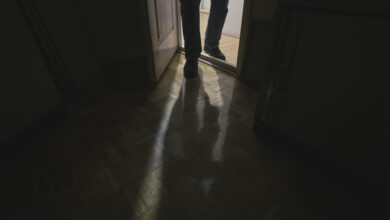Social media blurs the line between private and professional

A frustrated nurse posts on social media about a matter unrelated to her workplace and is found guilty of misconduct.
As an ever-increasing number of nurses embrace social media, they should not forget that the nature and content of their posts must not breach the professionalism expected of them.
A recent Canadian nurses’ disciplinary tribunal hearing investigated the online social media conduct of a nurse (CS). She initially posted negative comments on her Facebook page about the standard of care her grandfather was receiving. In doing so she named the health facility. Further, from her Facebook page it was clear CS was a member of the nursing profession. CS was found guilty of professional misconduct. While the judgement originates from overseas, it has direct relevance to Australia.
CS had a grandfather who was being cared for in a nursing home some three and a half hours from where she lived. CS did not work in her grandfather's nursing home facility. Due to the distance and time taken to visit, her visitations were infrequent and spasmodic. In any event, CS was critical of the standard and level of care being provided to her relative. She posted, among other things, the following three posts on Facebook:
It is evident that Not Everyone is “up to speed” on how to approach end of life care … Or how to help maintain an Ageing Senior’s Dignity (among other things!) So … I challenge the people involved in decision making with that facility, to please get All Your Staff a refresher on this topic AND More. [To] those who made last years less than desirable, Please Do Better Next Time! [And] a caution to anyone that has loved ones at the facility mentioned above: keep an eye on things and report anything you Do Not Like! That’s the only way to get some things to change.
And this has been an ongoing struggle with the often subpar care given to [named patient] (especially) for many years now … Hence my effort to bring more public attention to it (As not much else seems to be working). As an RN and avid health care advocate myself, I just HAVE to speak up! Whatever reasons/excuses people give for not giving quality care, I Do Not Care. It. Just. Needs. To. Be. Fixed. And NOW!
Do you actually care about the people you WORK FOR/Care For? Or is it JUST A JOB, WITH A PAYCHEQUE? … If so, maybe it’s time to take a step back. Either way I just want [named facility] (and everyone else in that facility) to be treated well, ALWAYS!
When the posts came to the attention of management, they made a written complaint to the relevant nurses' board, stating:
Despite [CS's] concerns regard (sic) , we find it unprofessional in that it specifically names our facility and location on page one then she identifies herself as a RN on page three. With previous [Nursing Board] instructions and caution warnings to all members about appropriate use of social media, we find her posting inappropriate. Our staff are very upset about the public posting as there were many factors involved in caring for [named patient], especially , of which [CS] is unaware. Regardless of this fact there are proper channels to air grievances and concerns which do NOT include Facebook. Even nursing registration exam questions address use of social media by registered nurses. To us, a letter from her to our facility staff would have been a professional avenue to follow not Facebook.
The tribunal found two aggravating issues concerning CS's behaviour/position. The first was via her Twitter account, tweeting her Facebook postings to the minister of health and to the leader of the opposition. In response, CS stated that she wanted them to know about her concerns and that people were often afraid to speak out about their experiences. Tellingly, once she tweeted her Facebook posting, it entered the public domain of social media and beyond her ‘control’.

The second aggravating issue was that CS at no stage brought her concerns to the attention, either formally or informally, of the executive director or any other staff at the facility. CS's position was further worsened by the fact that under cross-examination, she admitted no particular expertise in palliative care or end-of-life care.
There was no finding of naivety or lack of knowledge in using social media. Based on CS's evidence, it was clear to the tribunal that she was a frequent and sophisticated user of social media. She enjoyed sharing articles, making comments and inviting discussion, frequently about healthcare issues. In other words, she used social media to stimulate debate and discussions concerning health-related matters.
A significant submission made by CS was to assert that the posts were undertaken in her own home (away from the workplace) and in her own time. Hence CS's argument was that the nursing tribunal did not have jurisdiction to determine the matters. Her submission was that her conduct did not have to comply with and was beyond the ‘reach’ of the relevant codes of conduct and ethics for nursing, as it occurred at home, not in the work place, and hence outside of a ‘nursing practice’ environment.
The tribunal (rightly based on precedent) rejected this submission, and in so doing highlighted the porous boundaries of conduct categorised as work, professional and private. While many of the provisions of the Code and Standards refer to ‘nursing practice’ or ‘nursing care’, many provisions do not. The tribunal stated that the Codes and Standards should be interpreted broadly in order to meet their intent and purpose, which is to protect the public and promote the public standing of the profession of registered nursing.
This lead to a discussion about the principles of responsibility for off-duty conduct and the application of those principles to this case. Relying on precedent cases, the tribunal found that various regulated professionals are investigated and, depending on the facts of the case, disciplined for ‘off-duty’ conduct, and in so doing cited one judgement:
It is well settled, I think, that a professional [person] may expose [themselves] to disciplinary proceedings for conduct entirely outside [the] actual practice of [their] profession, if the conduct reflects on [them] in a professional way.
This case demonstrates that postings on social media made by nurses need to be very carefully and thoughtfully undertaken, as their professional responsibilities are not just confined to physical work hours or their physical workplace. Remember, think twice before you post once!
Scott Trueman is a lecturer in the School of Nursing, Midwifery and Nutrition at James Cook University.
Email: [email protected]





